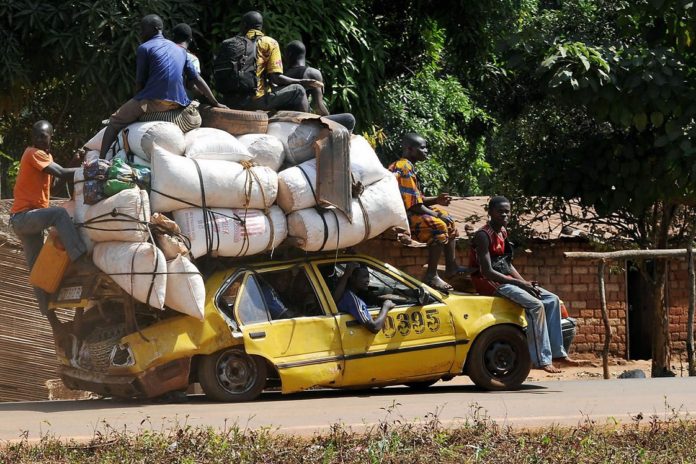NTOABOMA — In Physics, there are two sufficiently mundane concepts – Payload and Torque (in tandem with Horsepower) – that are relevant for describing today’s Economy. But before I introduce the concepts I will make two quick points that I think are equally illustrative.
First, I have the liberty to express scientific concepts in whatever economics form I deem necessary since the political economy that guarantees the perpetuation of the current iniquitous order – that is capitalism – has warranted this calling for rigorous description.
Second, whatever I may be describing in our collective political economy, with whatever concepts from science, neither makes me a practitioner of the dismal ‘science’ of economics nor of political science, which is an oxymoron. There is no science to politics nor economics.
The above mentioned issues altogether make this effort in applying concepts from Physics to Economics totally unnecessary—yet useful in gaining a peculiar understanding of the political economy from one dimension.
Payload (sometimes referred to as the actual or body load) is the cargo of any transmission. What is to be transferred from one point to another? That is payload. It is the fundamental purpose of the transmission. Payload does not include the transmitter. That is, in vehicle-speak, the truck doing the transfer of goods from Ntoaboma to Accra is not part of the payload. In computer science, information sent with the payload, such as headers or metadata (which are sometimes referred to as overhead data) are solely the vehicles that facilitate payload delivery.
The payload of an economy is the amount of goods and services (and their value) transferred within and without that economy. This does not include the means by which these deliveries are made. Certainly, the higher the payload, it would seem the more productive the economy. But wait…
This is where Torque and its twin, Horsepower, come in.
In Physics torque can be described in silly mathematics. Again, I stress: I am neither a practitioner of the dismal ‘science’ of economics nor of political science. That is why I return these terms to their source. Torque and horsepower together simply define the amount of force required to turn, for example, a wheel. Strictly speaking and in practice, torque is what a truck needs to take off with its payload. And horsepower is what the truck needs to move the payload faster to its destination.
Hence, one can simply describe the vehicles necessary for the transportation and delivery of goods and services in any given economy (payload) as the torque-horsepower.
The image above, in which a forty-six year old four-cylinder Toyota Carina is used to transport a disproportionate amount of payload from source of production to destination, represents a fundamental failing of the Ghanaian economy. In fact, this picture is symptomatic of the Economy of the continent as a whole.
One thing is clear: it is not the failing of the productive energies of the people who inhabit such a wonderful continent. It is the supreme failing of their governments who are unable to provide the conduits within which this payload, produced by the people, and produced in vast amounts, can be delivered to those who need them.
The voluminous discussion about below-par performing economies in Ghana and the rest of Africa and the desultory talk of Africa’s need to innovate, in their most general terms, do nothing but conceal a lack of perspective towards the drivers – torque and horsepower – of Economic Revolutions. These drivers merit as close a judgment as the similar lack of perspective towards the reasons why all this African payload and ingenuity go to waste.











Kantanka makes pickup trucks in Ghana. Instead of the government supporting his plants with subsidies like the South Korean government did with the Chaebols so that farmers and producers can cheaply acquire his pickup trucks to transport their goods and services, they will rather buy imported gas guzzling 4 X4 for their political prostitutes .gigolos and corrupt officials. The educated African elite is the problem..
Common sense reforms, common sense transportation, common sense education, common sense government, common sense living… none… so so struggling. How?
Very interesting piece Narmer Amenuti. When simple ideas are returned to their source, to their motivations, they hold such power that it is fascinating to even comprehend how such powerful ideas became so simple. Maybe that is the power of a profound idea. Hence the statement: Common sense in uncommon.
Maybe one day, Africa will give the world common sense leaders again. It’s been too long.
Well…. ain’t that a bitch?
Yessir!